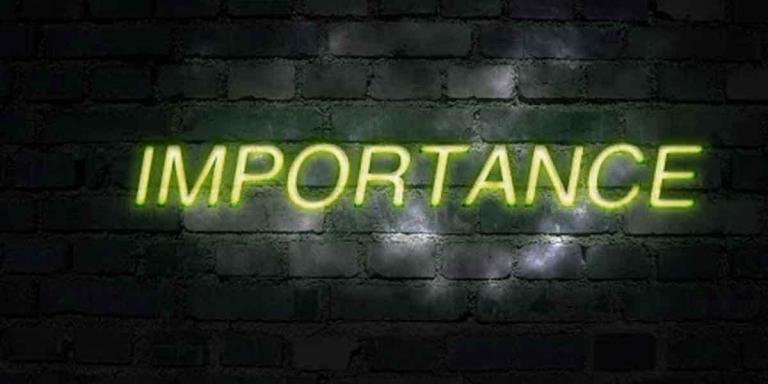Top Reasons for a New York Power of Attorney
Imagine for a moment that you are suddenly unable to manage your own affairs. A sudden illness, a serious accident, or the gradual decline of cognitive function could leave you incapacitated, unable to pay your bills, manage your investments, or even access your own bank accounts. In this vulnerable state, who would step in to protect your financial life? Without a plan, the answer could be a court-appointed stranger in a lengthy, expensive, and public proceeding. This is not a hypothetical risk; it’s a reality for many New Yorkers. Fortunately, there is a powerful legal tool designed to prevent this exact scenario: the New York Power of Attorney.
For over 30 years as a New York attorney specializing in estate planning and elder law, I have seen the profound peace of mind that a well-drafted Power of Attorney provides. I have also witnessed the devastating consequences families face without one. This document is far more than a simple form; it is a cornerstone of any effective life plan, allowing you to choose who manages your finances when you cannot. It is an instrument of empowerment, ensuring your affairs are handled by someone you trust, according to your wishes, without court intervention.
At Morgan Legal Group, we believe that proactive planning is the key to protecting your autonomy and your legacy. This comprehensive guide will explain exactly what a Power of Attorney is, why it is indispensable for every adult in New York, and how it functions to safeguard your future. We will delve into the specific laws that govern these documents and provide the insights you need to make informed decisions. For personalized advice, we invite you to get in touch with our experienced team.
What Exactly is a Power of Attorney?
At its core, a Power of Attorney (POA) is a legal document that allows one person, known as the “principal,” to grant another person, the “agent,” the authority to act on their behalf in financial matters. The principal is you—the person creating the document. The agent, sometimes called an “attorney-in-fact,” is the trusted individual you select to manage your affairs. This document is strictly for financial matters and should not be confused with a Health Care Proxy, which appoints an agent for medical decisions.
Key Terminology You Should Know
- Principal: The individual creating the Power of Attorney and granting authority (you).
- Agent (or Attorney-in-Fact): The individual appointed by the principal to make financial decisions.
- Fiduciary Duty: The agent’s legal and ethical obligation to act solely in the best interests of the principal. This is the highest standard of care recognized by law.
- Incapacity or Incompetence: A state in which the principal is unable to manage their own affairs due to a mental or physical condition.
- Durable Power of Attorney: A specific type of POA that remains in effect even if the principal becomes incapacitated. This is the most crucial feature for planning purposes.
Think of a POA as a private contract that you create. It allows you to delegate powers that you already possess, such as the power to sign checks, sell real estate, or file taxes. Your agent essentially steps into your shoes to handle these tasks. Without this document, your loved ones would have no legal authority to access your accounts or manage your property if you were unable to do so yourself, leading to a potential guardianship proceeding.
The Legal Foundation: New York General Obligations Law
In New York, the creation and use of a Power of Attorney are strictly governed by Article 5, Title 15 of the General Obligations Law. This statute has undergone significant changes over the years, with major revisions in 2009 and 2021 aimed at increasing clarity and protecting principals from fraud and elder abuse. These laws are why using a generic, out-of-state, or outdated form from the internet is incredibly risky and often invalid.
The NY Statutory Short Form Power of Attorney
To standardize the process, New York law provides a specific template called the “Statutory Short Form Power of Attorney.” While it is a “form,” it is a complex legal document that must be executed with the same formality as a will. The form lists a series of powers, from (A) through (P), that a principal can choose to grant to their agent. To grant a power, the principal must initial the line next to it. This “a la carte” approach ensures you only give the authority you intend.
Strict Execution Requirements
For a Power of Attorney to be valid in New York, it must be:
- Signed and dated by the principal (or by another person in the principal’s presence and at their direction).
- The principal’s signature must be notarized.
- The document must be signed and dated by the agent, and their signature must also be notarized. The agent can sign when the principal does or at a later time, but the POA is not effective until the agent has signed.
Failure to adhere to these strict requirements will render the document invalid. This is why working with a knowledgeable Power of Attorney lawyer is so important. We ensure that every document we prepare meets the precise standards of New York law, providing a robust and reliable tool for our clients in New York City and beyond.
The Most Important Feature: “Durability”
The single most critical component of a Power of Attorney for planning purposes is its “durability.” A traditional POA automatically terminates if the principal becomes incapacitated. This makes it useless for the very situation you are trying to plan for—a time when you cannot act for yourself. A “Durable” Power of Attorney, however, includes specific language stating that it remains in effect, or becomes effective, upon the principal’s incapacity.
Why Durability is Non-Negotiable
Imagine you have a standard, non-durable POA and you suffer a stroke that leaves you unable to communicate. At that very moment, the POA becomes void. Your agent loses all legal authority to act for you. Your bank accounts could be frozen, bills could go unpaid, and your finances could descend into chaos. A durable POA solves this problem. It is designed to survive your incapacity and continue to function seamlessly.
Under New York law, a POA is assumed to be durable unless it explicitly states otherwise. The statutory form contains the necessary language to create this durability. This feature is the bridge that connects your current well-being to a future where you might need help. It ensures that the person you chose remains in control, preventing the need for court intervention. This is a central pillar of sound elder law and incapacity planning.
Choosing Your Agent: The Most Important Decision
Granting someone a Power of Attorney over your finances is perhaps the greatest act of trust you can bestow. Your agent will have immense power and responsibility. Therefore, selecting the right person is the most critical decision in this process. It requires careful, objective consideration of their character, skills, and reliability.
Qualities of a Good Agent
Your agent does not need to be a financial wizard, but they must possess certain core qualities. Look for someone who is:
- Trustworthy: This is paramount. The person must be completely honest, with a strong moral compass.
- Responsible and Organized: Your agent will need to keep meticulous records, pay bills on time, and manage complex financial tasks. Disorganization can lead to costly mistakes.
- Assertive: They may need to advocate for you with banks, insurance companies, or government agencies. A person who is easily intimidated may not be effective.
- Financially Savvy: While they don’t need to be an accountant, they should have a good understanding of basic financial management.
- Willing to Serve: The role of an agent can be time-consuming and stressful. Ensure the person you choose understands the commitment and willingly accepts the role.
- Geographically Close (If Possible): While not a requirement, having an agent who lives nearby can make tasks like visiting a bank or managing property much easier.
Naming Successor and Co-Agents
What if your first-choice agent is unable or unwilling to serve when the time comes? For this reason, you should always name at least one successor agent. This creates a clear line of succession and avoids a gap in management. You can also name co-agents to act together. However, you must specify whether they can act independently (“severally”) or must act in agreement (“jointly”). Requiring joint action can provide a check and balance but can also be cumbersome and lead to delays if they disagree. An experienced attorney like Russel Morgan can help you weigh these options.
The Scope of Power: What Can Your Agent Do?
The New York Statutory Short Form POA allows you to grant a wide range of specific powers. You are in complete control of how much or how little authority your agent receives. You grant these powers by initialing the corresponding lines on the form. It is crucial to understand what each power entails before you grant it.
A Breakdown of Key Powers
- (A) Real estate transactions: This allows your agent to buy, sell, lease, or mortgage your property. This is vital if you need to sell your home to pay for long-term care.
- (B) Chattel and goods transactions: Authority over your personal property, such as furniture, vehicles, and valuables.
- (C) Bond, share, and commodity transactions: Power to manage your investment portfolio, including stocks, bonds, and mutual funds.
- (D) Banking transactions: The ability to access your bank accounts, write checks, make deposits, and manage safe deposit boxes. This is one of the most commonly used powers.
- (E) Business operating transactions: If you own a small business, this power allows your agent to continue its operation.
- (F) Insurance transactions: The authority to manage your life, health, and property insurance policies.
- (G) Estate transactions: This allows the agent to interact with your estate or the estate of someone from whom you may inherit.
- (H) Claims and litigation: The power to pursue legal claims on your behalf or defend you in a lawsuit.
- (I) Personal and family maintenance: A broad power to use your funds to support yourself, your spouse, and your dependents. This can include housing, food, and medical expenses.
- (J) Benefits from governmental programs: Authority to apply for and manage benefits like Social Security, Medicare, and Medicaid. This is critical for NYC elder law planning.
- (K) Health care billing and payment matters: The power to pay medical bills and deal with healthcare providers on a financial level.
- (L) Retirement benefit transactions: The ability to manage your IRAs, 401(k)s, and pensions.
- (M) Tax matters: The power to file and sign your tax returns and communicate with the IRS and state tax authorities.
You can also grant all of the above powers by initialing a single line. However, a thoughtful discussion with your estate planning lawyer is essential to customize the document to your specific needs.
The Power to Gift: The NY Statutory Gifts Rider
One of the most complex and critical aspects of a New York Power of Attorney involves the power to make gifts. Under current law, an agent’s ability to gift the principal’s assets is severely restricted unless specific authority is granted in a separate, companion document called the Statutory Gifts Rider (SGR).
Why Gifting Authority is So Important
Without an SGR, an agent can only make total gifts of up to $500 per year from your assets. This amount is often insufficient for meaningful financial planning. Gifting authority is crucial for two primary reasons:
- Medicaid and Long-Term Care Planning: Medicaid has strict asset limits for eligibility. A common strategy for long-term care planning involves transferring assets out of the applicant’s name. This is a form of “gifting.” Without the authority to make these gifts, your agent cannot implement a plan to protect your life savings from the staggering costs of nursing home care.
- Estate Tax Planning: For individuals with large estates, making annual exclusion gifts (currently $18,000 per recipient per year in 2024) is a key strategy to reduce future estate taxes. An agent needs gifting authority to continue this strategy if you become incapacitated.
The SGR allows you to authorize your agent to make gifts to themselves, your family, or others. It must be signed with the same formality as the POA itself, including two witnesses and a notary. Because it grants such immense power, the decision to execute an SGR requires a serious discussion about your goals and the trustworthiness of your agent. At our Long Island and NYC offices, we guide clients through this decision with the utmost care.
The Alternative to a POA: A Costly Guardianship Proceeding
Perhaps the most compelling reason to create a Power of Attorney is to avoid the alternative: an Article 81 Guardianship proceeding. If you become incapacitated without a durable POA, and decisions need to be made about your property, a concerned party (like a family member or a hospital) must petition the New York Supreme Court to have a guardian appointed for you.
Why Guardianship Should Be Avoided
A guardianship proceeding is the “nuclear option” and should be considered a last resort for several reasons:
- It is Public: The proceeding is a public court case. Your personal and financial information becomes part of the public record, resulting in a complete loss of privacy.
- It is Expensive: The process involves significant legal fees for the petitioner, a court-appointed evaluator, and an attorney for the alleged incapacitated person. These costs can easily run into tens of thousands of dollars, all paid from your assets.
- It is Time-Consuming: The process can take months, during which your finances are effectively frozen, potentially causing bills to go unpaid and assets to lose value.
- It is Emotionally Draining: It can be a contentious and stressful process for your family, especially if relatives disagree on who should be appointed as guardian.
- You Lose Control: The court, not you, decides who will manage your affairs. While the court often appoints a family member, it can also appoint a stranger, such as a local attorney or social worker, if it deems that to be in your best interest.
A properly executed Durable Power of Attorney costs a fraction of a guardianship proceeding and accomplishes the same goal privately, efficiently, and with a person of your own choosing in control. It is one of the most effective pieces of preventive law available and a cornerstone of the services we offer at Morgan Legal Group. For any guardianship-related questions, our team is ready to assist.
“Springing” vs. Immediately Effective POAs
When you create a durable POA, you can decide when it becomes effective. It can be effective immediately upon signing, or it can be a “springing” POA, which only becomes effective upon the occurrence of a future event—typically, your incapacity. The choice between these two options involves a trade-off between immediate convenience and control.
Immediately Effective POA
An immediately effective POA gives your agent the authority to act on your behalf the moment it is signed. This does not mean you lose any of your own authority; you can still manage your own affairs. It simply means you and your agent have concurrent authority. This is often the most practical option because it allows your agent to assist you with financial tasks for convenience, even when you are not incapacitated. Furthermore, it avoids the logistical hurdles of proving incapacity.
Springing Power of Attorney
A springing POA is designed for principals who are hesitant to grant immediate authority. It only “springs” into effect when a specific condition is met. The document must clearly define the trigger, which is usually a written declaration by one or more physicians stating that you are incapacitated. While this provides a sense of security, it can create significant problems in practice. Banks and financial institutions may be reluctant to honor a springing POA, demanding extensive, and often difficult to obtain, proof of your incapacity. This can cause the very delays you were trying to avoid. Due to these practical issues, many wills and trusts attorneys recommend an immediately effective POA for a highly trusted agent.
Executing and Storing Your Power of Attorney
Once you have decided on the terms of your POA, executing it properly is the final step. As discussed, this involves signing the document before a notary public. If you are also executing a Statutory Gifts Rider, you will need two witnesses in addition to the notary.
Safeguarding the Document
After execution, the original document is extremely valuable. You should store it in a safe but accessible place, such as a fireproof box at home or a safe deposit box. However, if you use a safe deposit box, ensure your agent is listed as a co-owner or has legal access; otherwise, they may need a court order to open it. It is essential to inform your agent and successor agents where the original document is located. You should also provide them with copies. Many people choose to have their attorney hold the original documents for safekeeping. Our firm offers this service to provide our clients with security and peace of mind. We encourage you to schedule an appointment to discuss your options.
Conclusion: An Essential Tool for Every New Yorker
The New York Power of Attorney is not just a document for the elderly or the infirm. It is an essential planning tool for every competent adult. Life is unpredictable, and incapacity can strike at any age. By creating a durable Power of Attorney, you are taking a definitive step to protect yourself and your loved ones from the chaos, expense, and emotional distress of a court-supervised guardianship. You are choosing who will manage your financial life, ensuring continuity and care when you need it most.
This single document can mean the difference between a private, dignified transition of management to a trusted loved one and a public, costly, and stressful court battle. It empowers you to control your destiny, safeguard your assets, and provide your family with a clear path forward.
The laws surrounding the Power of Attorney in New York are specific and complex. Attempting to navigate them with a generic form or without expert legal counsel is a significant risk. For over 30 years, Morgan Legal Group has been dedicated to crafting customized, robust legal documents that protect our clients across New York. We understand the nuances of the law and the profound importance of this document. Don’t wait for a crisis to force your hand. Take control of your future today. We invite you to contact us for a consultation to discuss how a Power of Attorney can secure your legacy.
For more information, the New York State government provides the official statutory form, which can be reviewed here: New York General Obligations Law § 5-1513.







